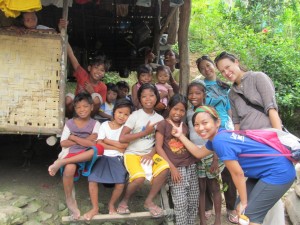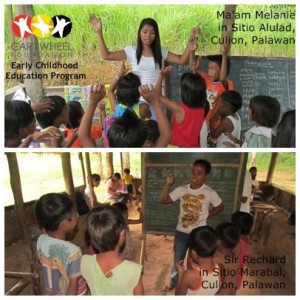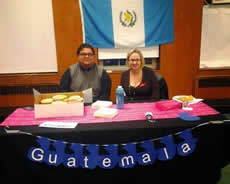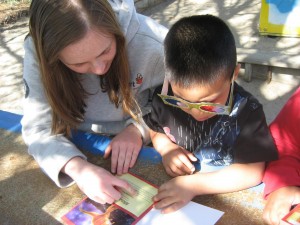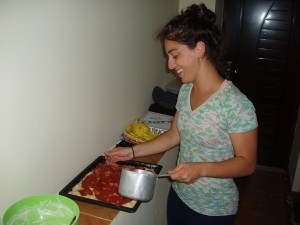
Visiting a Peace Corps friend in northern Armenia for the weekend and making some good old-fashioned pizza
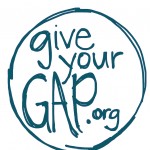 Name: Talene Ghazarian
Name: Talene Ghazarian
School: University of North Carolina, Chapel Hill
Type of Work: Medical/Public Health
Region: Eastern Europe
Length of stay: 1 Year+
Tell us about the organization you work for and what you do for them.
I worked predominantly for two organizations: World Vision in a more rural setting, and the Women’s Resource Center Armenia (WRCA) in the capital city, Yerevan. While working with World Vision’s area development program in the small town of Talin, I worked mostly with maternal support groups in the surrounding villages doing public health education about various topics (diabetes, nutrition, smoking etc). In addition I planned health education days at various summer camps for children. All my work was done in Armenian. At the Women’s Resource Center I chose to focus on women’s self-defense and sexual education. I taught the staff the basic methods taught in RAD (Rape Aggression Defense) course and left them some teaching material. I also co-taught a comprehensive sexual education class for young women. During my time in Armenia, a women was killed as a result of domestic violence. We became involved on various levels, including; getting legislation changed, organizing a march, helping the family and the orphaned child etc. I also helped do research and basic translations. The Women’s Resource Center was a very warm and welcoming environment to work in. Also many staff and volunteers speak English.
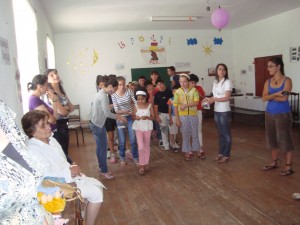
Playing a nutrition education game about food groups with summer camp kids in Talin. The kids loved it!
Share a favorite memory.
Armenians celebrate Christmas on January 6th. I was a bit sad to be away from home for the holidays, but the women at the Women’s Resource Center were so thoughtful and inclusive, that my mood quickly changed. The week between New Years and January 6th was spent going from house to house, eating, drinking and being grateful. At that point, I no longer felt like an outsider who had come to volunteer, I had become part of the collective.
What have you learned from your experience? How has it affected your long-term goals?
My work in both placements helped me realize the importance of policy in affecting change in health and women’s rights. This sparked an interest in law and I actually applied to law school, with plans to do a dual masters in public health and law degree. I decided to start with the MPH and am trying to figure what my niche in the health policy world would/could be, and how to best prepare for it.
What is the most challenging part of your job?
Most of the world works at a slower pace than we are used to in America. Making that mental adjustment can be very tricky and result in a lot of frustration. This was especially true for me at World Vision. There were also gender inequality issues and issues of people smoking indoors that was very challenging and resulted in many fruitless conversations.
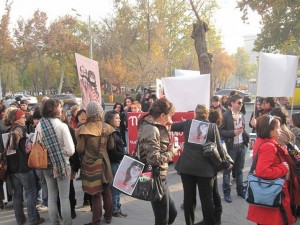
Taking part in a march organized by the Women’s Resource Center Armenia, to increase awareness about domestic violence and the need for more stringent punishments.
Do you have any advice for prospective gappers?
Be a flexible, self-starter. Think hard about things you might want to bring with you that you can’t get there. Resistance bands for exercise, a multi-tool, a head torch etc.
Where is Talene now?
Talene went on to get her Master’s in Public Health from the University of North Carolina, Chapel Hall. Currently she is studying law at Boston University


